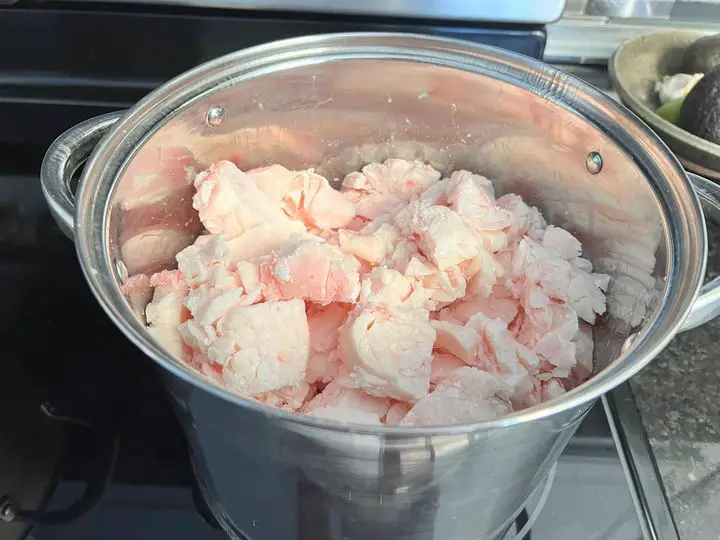Ingredients:
- Beef fat trimmings (preferably from grass-fed beef for better flavor and quality)
- Prepare the Fat:
- Cut the beef fat into small pieces. The smaller the pieces, the quicker it will render.
- Alternatively, you can ask your butcher to grind the fat for you, which will speed up the process.
- Render the Fat:
- In a large pot, add the beef fat and heat over low heat. Cook slowly to prevent burning.
- Stir occasionally to ensure even rendering. As the fat heats, it will begin to melt and separate from any connective tissue or meat bits.
- Continue cooking for 2-4 hours, depending on the amount of fat and how finely it’s chopped.
- Strain the Tallow:
- Once all the fat has melted and there are small crispy bits left (known as cracklings), strain the liquid fat through a fine mesh sieve or cheesecloth into a clean, heat-safe container.
- Let the strained tallow cool and solidify.
- Store:
- Once cooled, the tallow will turn solid and white.
- Store it in an airtight container at room temperature for up to a month, or in the fridge for several months.
Uses for Beef Tallow:
- Cooking: Use it for frying, sautéing, or roasting vegetables and meats.
- Baking: Substitute tallow for butter or shortening in recipes for a unique flavor.
- Skincare: Tallow is excellent for making homemade lotions and balms due to its moisturizing properties.
Nutritional Information (per tablespoon):
- Calories: ~115 kcal
- Fat: ~13g
- Saturated Fat: ~6g
- Cholesterol: ~12mg
- Carbohydrates: 0g
- Protein: 0g
Beef tallow is highly prized for its stability at high temperatures and its rich, savory flavor, making it a popular choice for traditional cooking methods.

